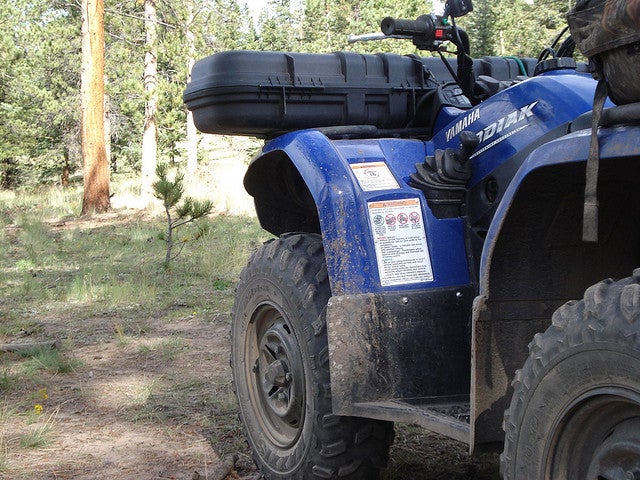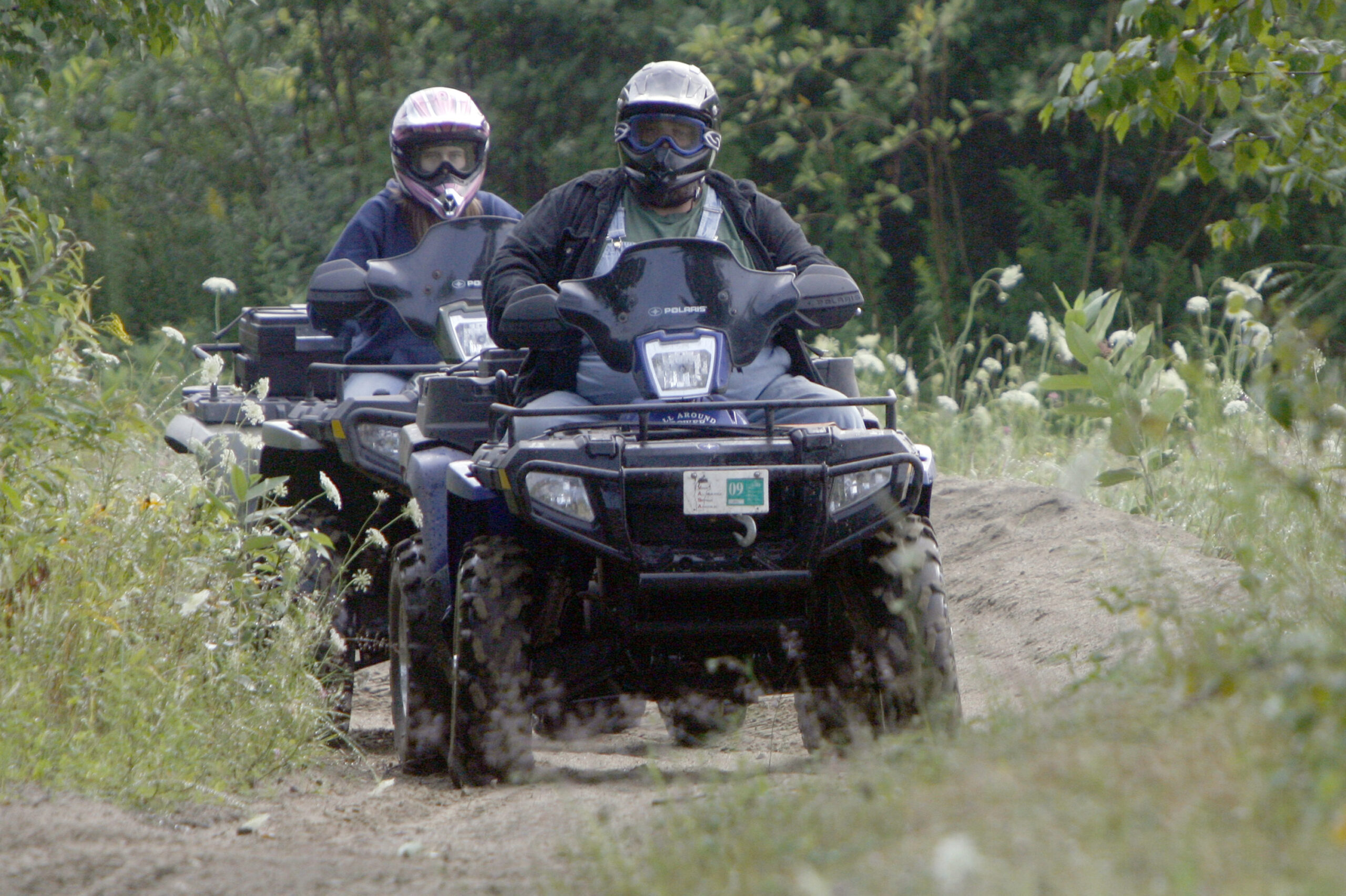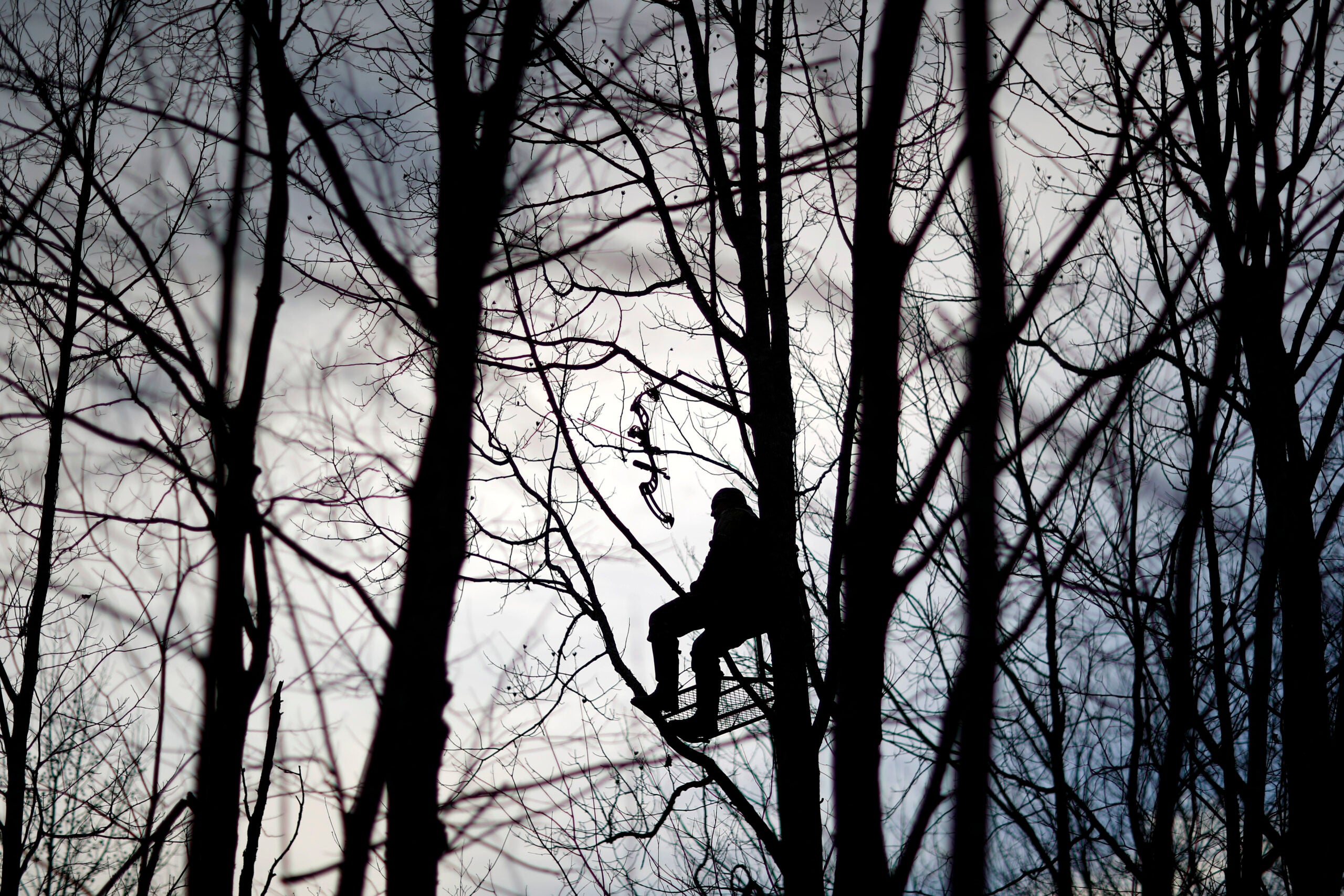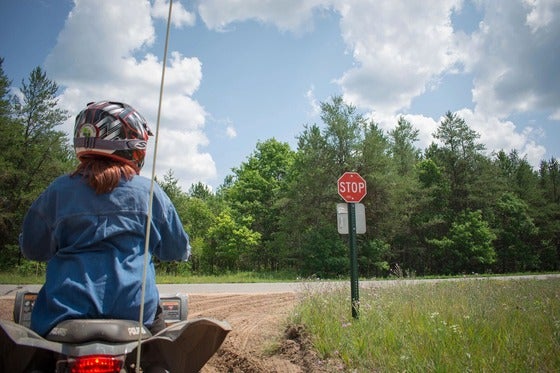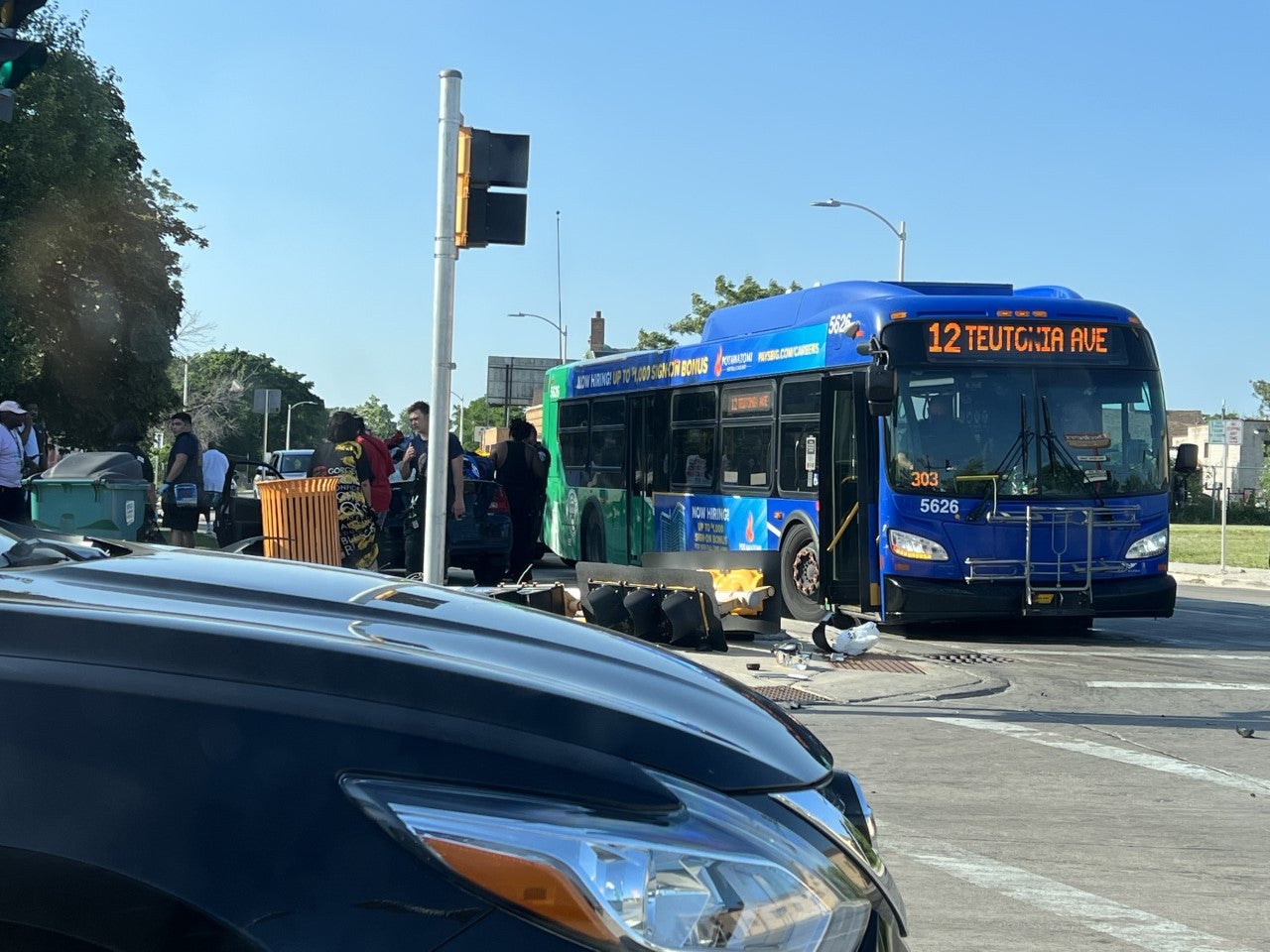The Wisconsin Department of Natural Resources is spreading the word about recreational vehicle safety ahead of hunting season. The agency collects annual data on crashes, injuries and fatalities involving ATVs, UTVs, snowmobiles, boats and off-highway motorcycles, or OHMs.
While the overall death toll for ATV and UTV crashes was the lowest it’s been since 2015, there were more than 255 reported injuries and 21 deaths in the state last year.
ATVs were the most common recreational vehicle to be involved in crashes in the state in 2022.
Stay informed on the latest news
Sign up for WPR’s email newsletter.
Alcohol use and reckless driving were among the top factors in recorded crashes last year, with 27 fatal recreational vehicle crashes involving alcohol.
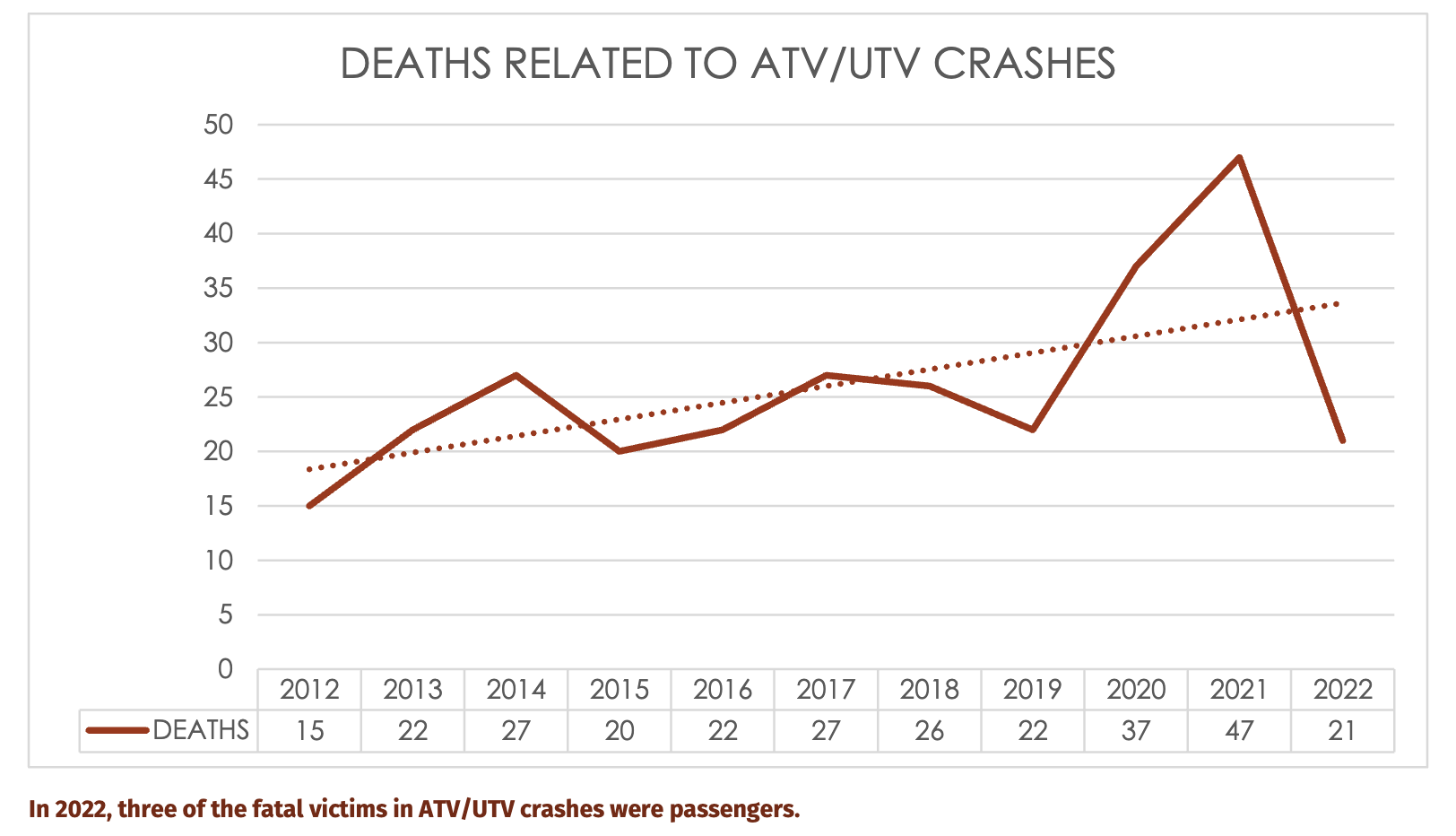
It’s illegal to operate ATVs, UTVs and other recreational vehicles while under the influence of alcohol or another controlled substance. But, it’s not illegal to have an open beer or mixed drink while driving them.
A bill banning open containers on recreational vehicles was introduced by Republican senator André Jacque of DePere along with four Democrats earlier this year. Jacque said he’s concerned for the safety of drivers and riders as well as the litter on trails and roads.
“This is something that makes a whole lot of sense,” Jacque said of the bill.
Lt. Warden Jake Holsclaw, DNR off-highway vehicle administrator, enforces ATV laws. He said too many people treat the vehicles as toys.
“You throw alcohol with speed, with careless or reckless operation, it’s just a recipe for disaster,” Holsclaw said.
Holsclaw stressed the importance of helmets and seatbelts. ATV drivers and passengers under the age of 18 are required to wear a helmet, and Holsclaw said wearing a helmet is “best practice” for everyone, no matter their age.
“Even the folks that are intoxicated or driving too fast or driving carelessly, a lot of those people would probably be alive today if they were wearing a helmet or if they’re wearing a seatbelt or both,” Holsclaw said.
Nearly 30 minors were injured and two were killed in ATV crashes last year. Anyone born after 1988 is required to complete a safety certification course to drive an ATV on public land. In these classes students learn the laws and ethics of driving recreational vehicles as well as how to operate the machines and practice personal safety.
Randy Harden is the president of Wisconsin ATV/UTV Association. The group advocates for rider safety through initiatives including the Trail Ambassador Program.
The ambassadors, which include DNR safety instructors as well as ordinary riders, position themselves along popular trails in welcome centers to remind everyone about safety.
“Ignorance is not an excuse, ultimately, because everybody who’s operating this machine is responsible for knowing the rules and the regulations,” Holsclaw said.
Harden said people have been receptive to the welcome centers and the trail ambassadors.
“People are hungry for that kind of information,” he said.
Harden said he has noticed an influx of new riders who need to be brought up to speed on safety practices since the beginning of the pandemic. Still, experienced riders can grow negligent about the rules as well, he said. He prioritizes education for both groups.
“It’s exhilarating, but you’ve got to do it the right way,” he said.
Wisconsin Public Radio, © Copyright 2025, Board of Regents of the University of Wisconsin System and Wisconsin Educational Communications Board.

